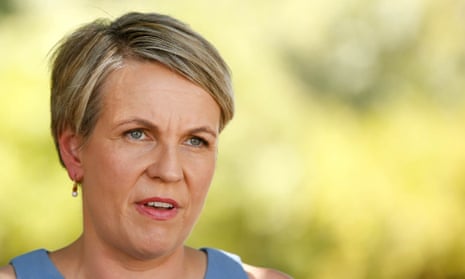Labor has proposed a $280m independent education institute to evaluate what works and what doesn’t in Australian schools.
Labor’s education spokeswoman, Tanya Plibersek, said the Evidence Institute for Schools would “put an end to decades of ideological battles about school education” and “take politics out of the classroom”.
The institute, to cost $73m over the first four years or $280m over 10 years, would commission research, assess programs promoted and sold into schools, and provide educators with guides summarising the evidence of best teaching practice.
The policy is designed to spread the best teaching practices and educational programs, saving money by helping schools avoid products that don’t live up to claims to boost educational outcomes.
Plibersek said the institute “will help improve schools by ensuring teachers and parents have high-quality research at their fingertips”.
“Armed with the best and latest evidence in digestible, easily applicable formats, teachers will be able to exercise their professional judgement about how to best help their students,” she said.
“The institute will be independent of government. Politicians shouldn’t tell teachers how to do their jobs, or be using schools as ideological battlegrounds.”
In 2016 the Turnbull government released its quality school reforms, including measures to reward more experienced teachers, improve teacher quality and test phonics skills in year 1 students.
The reforms replaced Labor’s national education reform agreements, which included targets for improving literacy and numeracy.
Learning methods are the subject of political controversy, with the use of phonics as a tool to learn reading favoured by many, including the Centre for Independent Studies . But a recent proposal to test synthetic phonics – where children practise sounding out letters and sounds – prompted a backlash among teachers’ unions and some academics.
In 2017 the Turnbull government announced a review into regional schools, which provided its report to the government in January, and a second review led by David Gonski to ensure that education funding was spent on evidence-based initiatives proven to boost student results. The Gonski review is due to report next month.
The president of the Australian Primary Principals Association, Dennis Yarrington, said it had proposed a school evidence institute to the second Gonski review and welcomed the initiative.
Yarrington told Guardian Australia there is currently “no one place I could go to for valuable independent, peer-reviewed research”, as schools relied on their links to universities, non-government institutes and private companies for research on education programs.
He said the Australian Council for Educational Research, a not-for-profit but private body, was popular with schools but charged for programs and research.
“If [the institute] is about developing research and providing evidence around particular programs, then it’s a service to schools,” he said.
Yarrington said given the Evidence Institute for Schools could commission research, it could investigate the best assessment practices, including gathering “better data around student growth and achievement, that is not based around standardised and high-stakes testing”.
The Evidence Institute for Schools is modelled on similar initiatives in the US and UK.
The UK’s Education Endowment Foundation assesses programs like Texting Parents, which it found improved students’ maths results with automated text messages about upcoming tests, whether homework was submitted on time and what children were learning.
It found the Chatterbooks program, which aimed to improve literacy by having university students volunteering to read with upper primary students, did not improve results.
Labor has also promised to restore $17bn over 10 years to schools by reversing cuts in the 2014 budget and fully implement needs-based funding.
“Our institute will help make sure Labor’s extra investment achieves better results for our kids, so we can quickly scale up programs that work and dump those that don’t,” Plibersek said.
